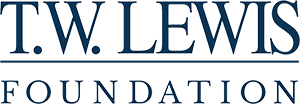The True Impact of Philanthropy: Beyond Writing Checks
Philanthropy is more than just a monetary contribution; it encompasses giving time, offering expertise, and advocating for meaningful causes. At the heart of effective philanthropy lies a commitment to not only provide financial support but to engage with organizations in ways that foster growth and measurable success.
Engaging Beyond Financial Contributions
While financial donations are essential, the act of writing a check is often the least rewarding aspect of philanthropy. The true impact comes from being actively involved with organizations. This means working alongside them to establish key performance indicators (KPIs) and objectives, which in turn helps these organizations thrive. As a businessman, leveraging professional skills to help organizations focus on and achieve these objectives is particularly gratifying.
Focused and Measurable Goals
Supporting a variety of organizations, especially in the local community, requires a strategic approach. This involves setting clear, achievable goals and metrics. The aim is not just to maintain the status quo but to drive continuous improvement. Simplifying complex processes and focusing on the top three priorities can significantly enhance an organization’s effectiveness. This approach ensures that contributions are used efficiently and that the impact of the support is measurable and meaningful.
The Responsibility and Rewards of Giving
Philanthropy is a responsibility for those who have the means to give, whether in terms of time, talent, or financial resources. The age-old adage, “it is better to give than to receive,” holds true. The more you give, the more you receive in return. This reciprocal nature of giving enriches both the donor and the recipient, creating a cycle of generosity and fulfillment.
Full Video Transcript:
You know, in philanthropy, there’s a number of things you can give. You can give your time, you can give your money, you can give your input, and then you can be an advocate for each of the organizations. And we try to do all of that. I mean, certainly, the least fun we get out of it is really writing the check, but it’s all the other things that come with that. And after that, especially important to me, is really trying to impact an organization, to try to help them get better. And, you know, we support a lot of different organizations in the valley in a number of different areas, but in all of them, we try to come up with key metrics that would be goals for this particular organization to shoot for and try to achieve.
And then, as a businessman, one of my goals is to try to help use my skills with a particular organization so that they can focus on accomplishing key objectives that we agree to. And so we’re not just trying to give them money to keep doing what they’re doing, we’re trying to give them money to make them get better. And I think they appreciate that. I think a lot of times organizations get caught up in all the reporting that they have to do, and it gets too complicated. And I think sometimes it’s easy to make it hard, and it’s hard to make it easy. But I try to focus on the top three: what are the three most important things that you really need to accomplish, and what can this gift do to help you get there? And so let’s blow away the smoke, and let’s focus on what really matters here, and then let’s measure that, and let’s measure it the right way.
First of all, I think it’s a responsibility for people that have the wherewithal in any of the areas—the time, the talent, the advocacy, and the check writing. It’s kind of a responsibility. But really, I think what a lot of people, this is what they can get out of it. You know, it’s been around forever that it is better to give than to receive, and that’s really true. So the more you give, the more you get. That’s just the way this world works, and we’ve certainly found that to be true. And I think a lot of people think of it as they’re giving something up, but whatever they’re giving up, they’re getting back tenfold. And so I would encourage people to think about that.
Another thing we’ve been doing recently that has been very well received is making matching gifts over multiple years and matching other major gifts. And it’s amazing how well that works because both our gift and the other donor feel like they’re getting twice the impact. So we’re trying to encourage other people to give through that. And also, we’d like to think we’re a role model in some of the things we did well.
I think most organizations in fundraising try to go for the close too quickly. And I think because we’re on kind of the receiving end of that, you’ve really got to build the relationship and win the trust. And what we’ve learned is that we don’t like to start out with big gifts; we like to start out with small gifts and see how they’re handled and see how they handle us. And we like to say that we want to give to organizations that, one, are effective; two, are receptive to us and our input; and finally, are grateful in however they can express that. But I think a lot of organizations need to work on all three of those.
Happiness is not something that you pursue directly, but I believe it is something that is the natural result of two things: one is helping other people, and two is growing as a person. And I think for Jan and me, philanthropy has done both of those things for us.
